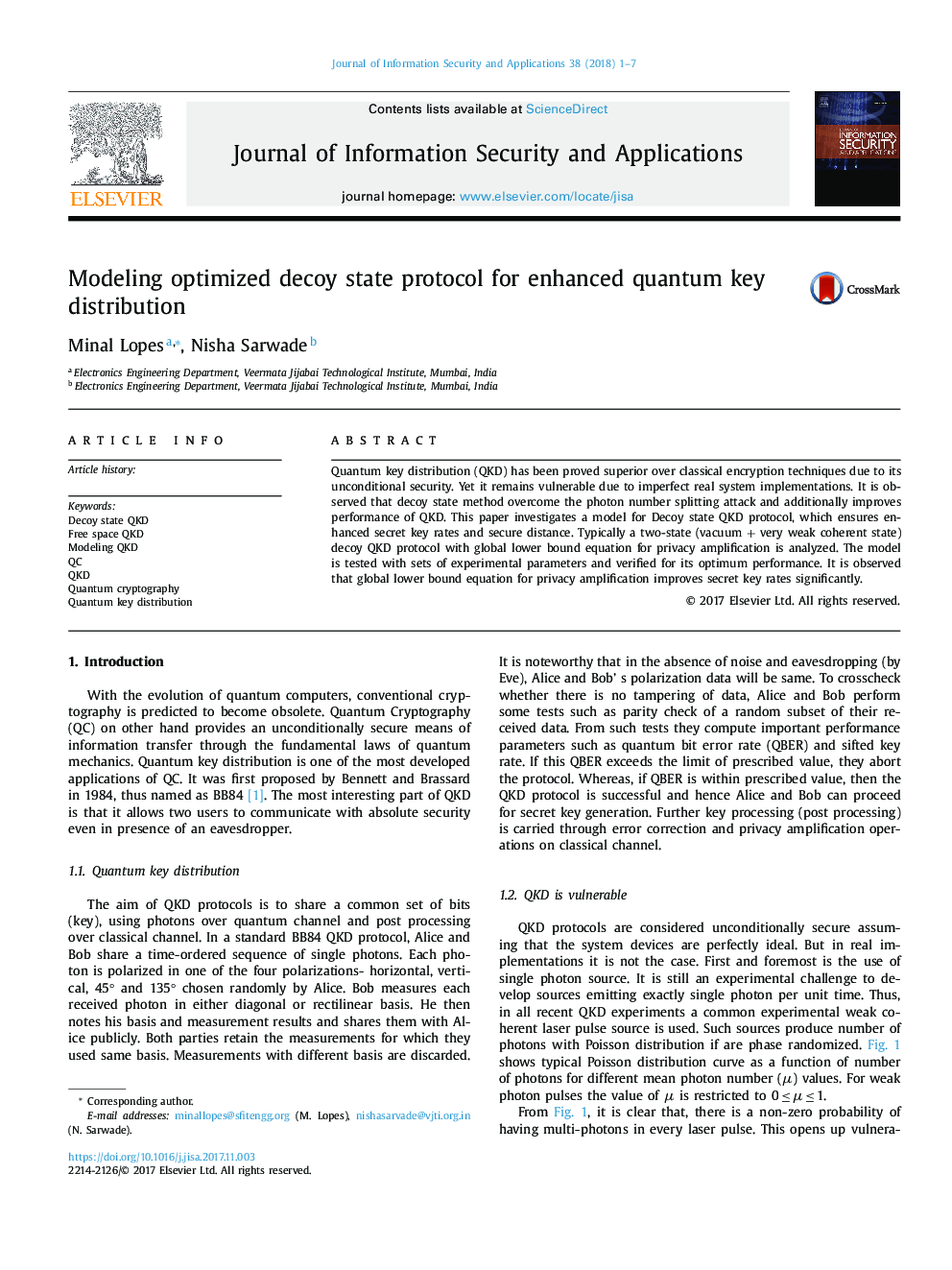| Article ID | Journal | Published Year | Pages | File Type |
|---|---|---|---|---|
| 6884604 | Journal of Information Security and Applications | 2018 | 7 Pages |
Abstract
Quantum key distribution (QKD) has been proved superior over classical encryption techniques due to its unconditional security. Yet it remains vulnerable due to imperfect real system implementations. It is observed that decoy state method overcome the photon number splitting attack and additionally improves performance of QKD. This paper investigates a model for Decoy state QKD protocol, which ensures enhanced secret key rates and secure distance. Typically a two-state (vacuum + very weak coherent state) decoy QKD protocol with global lower bound equation for privacy amplification is analyzed. The model is tested with sets of experimental parameters and verified for its optimum performance. It is observed that global lower bound equation for privacy amplification improves secret key rates significantly.
Related Topics
Physical Sciences and Engineering
Computer Science
Computer Networks and Communications
Authors
Minal Lopes, Nisha Sarwade,
